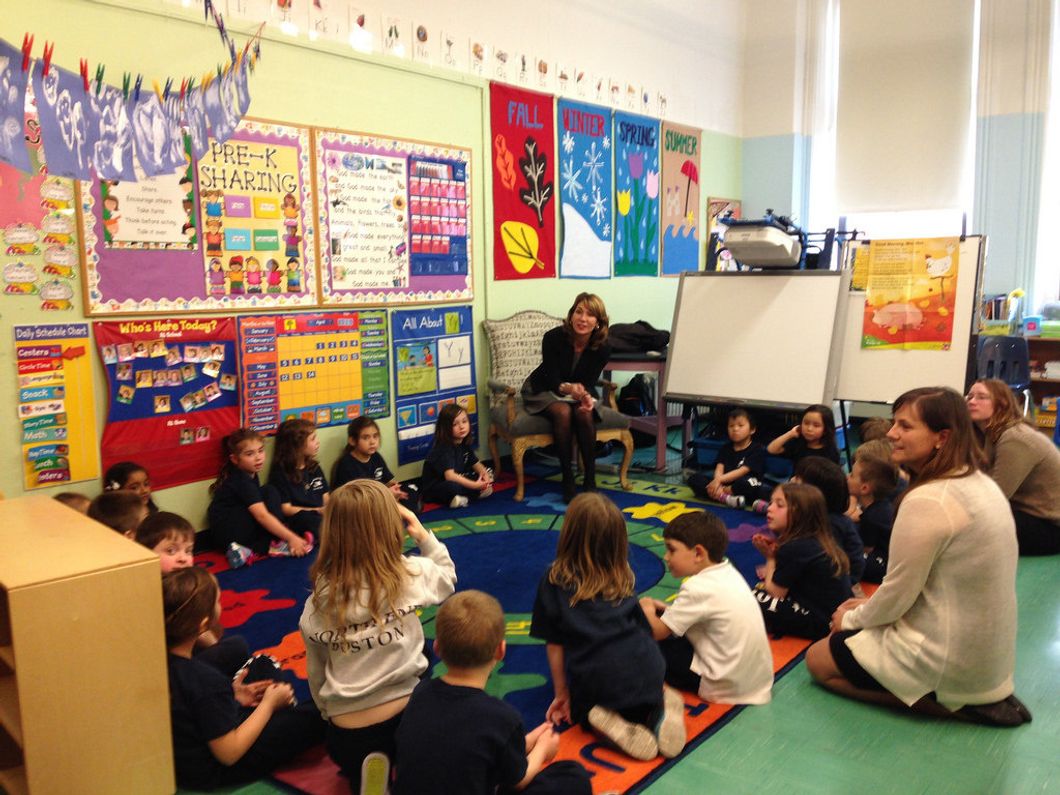When I was in elementary school, desks only existed in the schools on TV. So did playgrounds, tests, and teachers addressed by their last names. While some may view my childhood education as unconventional, my four years spent at a Montessori school provided me with knowledge and values that have put me far ahead of my public school peers.
It is the Montessori philosophy to "follow the child," and I give credit to my Montessori years for my ability to motivate myself independently and seek answers without the push from my superiors. While my public school peers spent their days sitting at their desks listening to their teacher at the front of the room, I was free to roam the classroom as I pleased and taught myself at my own pace with guidance from my teacher only when I asked for it. Additionally, it was standard practice for students to address their teachers by their first names, and as a kid, this made me feel like my teachers were people I could trust and approach instead of high authoritative figures to be feared.
Montessori education also gave me a lot of room for imagination, so I strongly believe that my creative thinking skills are all thanks to the minimal structure found in a Montessori classroom. Instead of filling out worksheets all day, we had boxes of materials designed to teach a variety of areas in an engaging and interactive way. Even our recess time was spent working our imaginations to the max; my Montessori school didn't build a playground behind the school in order to preserve the large woods where us students explored, played pretend, and built forts out of logs and sticks.
One of the most valuable benefits I gained from a Montessori education was culture. Due to the demand for students to perform well on tests, it seems as though public schools have shifted their focus from topics that enrich a child's cultural awareness like music, geography, and language to more straightforward disciplines such as math and English. My Montessori school dedicated a significant amount of time towards learning geography and exploring cultures that exist outside of our small town.
I spent hours tracing and labeling maps, singing songs from countries around the world, and learning different languages. Now that I am in college, I am starting to see how valuable these skills are, as it's shocking to see how oblivious even college students are to people of different cultures and geographic locations. Having a greater sense of cultural awareness has helped me build stronger relationships with others and has enriched my life with more color and diversity; without these skills and knowledge, I would be missing out on so many opportunities and relationships that have changed my life.
Most importantly, however, Montessori education has taught me that learning is not a competition but a journey. Between GPAs and standardized tests, public schools have been promoting short-term learning where students are pushed to regurgitate and erase information on a test to test basis. Although competition may be a source of motivation for many students, it often takes away from the sole purpose of academics: learning. We live in a culture where teachers aren't allowed to cover the topics that they feel would enrich their students' lives because they're trained to focus on content that will be presented on tests.
Before I attended my first public school in the fifth grade, I had no idea what it was like to be tested on what I had learned or receive a grade for my performance. Montessori has taught me to center my focus on exploring the world around me while appreciating all I have to learn from it. While other students stress over the numbers, I remind myself that learning something valuable takes precedence over an acceptable test grade because, in my opinion, as long as I'm learning, I'm thriving. Now that I'm acclimated into the public school system, it can be hard to hang onto my Montessori values in the midst of a competitive environment; however, my Montessori background always reminds me to be excited about learning and that it's ok to stray from the common path in order to explore something new.



















